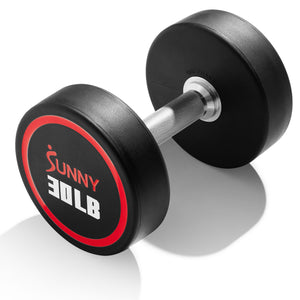As the winter season settles in, the focus on hydration might take a back seat to cozy blankets, hot cocoa, and chilly outdoor adventures. However, staying hydrated during the winter is crucial for overall health and well-being, even though the need may not be as apparent as in hot weather. The cold temperatures can trick you into thinking you’re not losing as much fluid, but the truth is, your body still loses water through various processes, and staying hydrated is essential for optimal functioning.
Water makes up approximately 60% of adult bodies and is essential for regulating our daily bodily functions. According to several studies, the brain and heart are composed of about 73% water, the lungs are about 83% water, the skin contains 64% water, the muscles and kidneys are 79% water, and the bones contain about 31% water.(1) Water is necessary for cellular function, transporting nutrients, removing waste from the body, temperature regulation, joint lubrication, supporting the immune system, hydrating tissues and organs, maintaining blood pressure, and balancing electrolytes.(2)
Here are some reasons why winter hydration is important along with tips for maintaining adequate hydration during winter workouts:
Importance of Winter Hydration:
1. Dehydration Risks
Cold weather tends to suppress the sensation of thirst, making it easier to forget to drink water. You may also notice that you’re sweating less. However, even when you’re not sweating, you lose water through the skin. The drier air can cause dehydration without you even noticing.(3) A lack of water not only results in dehydration but can increase your risk of kidney stones, urinary tract infections, cold-related illnesses and constipation.(4)
2. Skin Health
Cold, dry air can contribute to skin dehydration. Proper hydration helps maintain skin elasticity and moisture, reducing the risk of dry and cracked skin. In a 2007 study by the International Journal of Cosmetic Science researchers looked at the effects of long-term water intake on skin health. The study found that drinking about 9 cups of “water every day for four weeks altered skin density and thickness”.(5) Another study by the University of Missouri-Columbia showed that drinking about two cups increased blood flow to the skin.(6) Essentially, water is the most accessible anti-aging moisturizer on the market.
3. Immune Function
Winter can bring an onslaught of colds and flu. Staying hydrated supports your immune system and act as a preventative measure against the sniffles. The immune system is a complex network of cells and proteins that work together to defend the body against infections and illnesses. Hydration helps to flush out toxins, eliminate waste products, ensures optimal blood circulation, reduces inflammation, and keep your defenses strong.(7)
4. Cognitive Function
Dehydration can impair cognitive function, especially while performing tasks that require attention, psychomotor, and immediate memory skills.(8) Additionally dehydration has been found to affect mood, concentration, and overall mental well-being.(9) Research suggests that even mild dehydration may lead to cognitive deficits, reduce alertness, slow reaction time, and reduce executive functioning.(10)
Tips for Maintaining Hydration in Winter
1. Set Reminders
Since the sensation of thirst may be diminished in cold weather, set regular reminders to drink water throughout the day. Make it a habit to take a sip even if you don't feel thirsty.
2. Stay Hydrated On-the-Go
Carry a water bottle with you everywhere you go to encourage hydration throughout the day. If you're working from home, have a designated water vessel at your desk and refill as necessary.
3. Choose Warm Beverages
Opt for warm beverages like herbal teas, warm water with lemon, or broths. These can contribute to your daily fluid intake while also providing warmth.
4. Hydrate Before, During, and After Workouts
Just because it's cold doesn't mean you won't sweat during winter workouts. Drink water before, during, and after exercising to replace fluids lost through sweat.
5. Use a Hydration Pack
If engaging in winter sports like skiing or snowboarding, consider using a hydration pack. It's easy to forget to drink when bundled up, but having water readily accessible will prevent dehydration.
6. Eat Water-Rich Foods
Consume foods with high water content, such as fruits and vegetables. This not only contributes to hydration but also provides essential vitamins and minerals.
Remember that individual hydration needs vary, so pay attention to your body's signals and adjust your water intake accordingly. Staying hydrated in the winter is a key aspect of maintaining good health and ensuring optimal performance, both mentally and physically.
1-2. Water Science School. (2019, May 22). The Water in You: Water and the Human Body. United States Geological Survey.
https://www.usgs.gov/special-topics/water-science-school/science/water-you-water-and-human-body#:~:text=Up%20to%2060%25%20of%20the,bones%20are%20watery%3A%2031%25. Accessed 14 December 2023.
3-4. Graziano, A. (2022, December 2). The Importance of Winter Hydration. Massachusetts General Hospital.
https://www.massgeneral.org/news/article/the-importance-of-winter-hydration#:~:text=Even%20when%20you're%20not,urinary%20tract%20infections%2C%20and%20constipation. Accessed 14 December 2023.
5. Williams, Stefana & Krueger, Nils & M, Davids & D, Kraus & Buntrock, Heike & acknowledgements, with. (2007). Effect of fluid intake on skin physiology: distinct differences between drinking mineral water and tap water. Int J Cosmet Sci. 29. 131-8. Accessed 14 December 2023.
6. Forefront Dermatology. (N.D.). The Role Water Plays in Skin Health. Forefront Dermatology.
https://forefrontdermatology.com/role-water-plays-skin-health/#:~:text=%E2%80%9CWithout%20adequate%20water%20intake%2C%20skin,and%20have%20irritations%20and%20blemishes.%E2%80%9D. Accessed 14 December 2023.
7. Popkin, B. M., D'Anci, K. E., & Rosenberg, I. H. (2010). Water, hydration, and health. Nutrition reviews, 68(8), 439–458. https://doi.org/10.1111/j.1753-4887.2010.00304.x. Accessed 14 December 2023.
8. Adan A. (2012). Cognitive performance and dehydration. Journal of the American College of Nutrition, 31(2), 71–78. https://doi.org/10.1080/07315724.2012.10720011. Accessed 14 December 2023.
9-10. Shabir, O. (2020, September 16). Levels of Hydration and Cognitive Function. News Medical.
https://www.news-medical.net/health/Levels-of-Hydration-and-Cognitive-Function.aspx#:~:text=Even%20mild%20dehydration%20(around%204,%2C%20worse%20mood%2C%20and%20attention. Accessed 14 December 2023.




























Add Your Name & Email
Please enter your name and email to continue.We won’t display your email publicly.